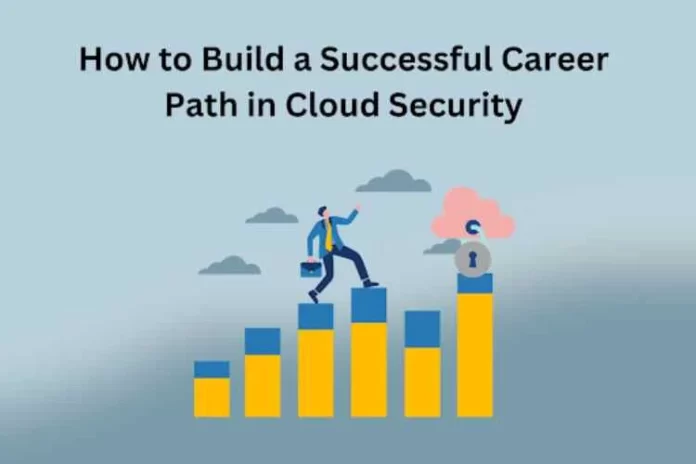As organizations increasingly migrate to the cloud, there is an extraordinary demand for qualified cloud security professionals. Developing a prosperous career in cloud security calls for a strategic approach that blends technological expertise, continuous education, and a proactive attitude. This blog will cover important processes and things to consider whether you’re looking for a CCSP Qualification to enhance your cloud security credentials or aiming to carve out a fulfilling CCSP Career.
Table Of Contents
- Points to Consider while Building a Career in Cloud Security
- Conclusion
Points to Consider while Building a Career in Cloud Security
Acquire a Strong Educational Foundation
Having a strong educational background is frequently the first step towards a successful career in cloud security. Make the time and effort to enrol in appropriate training courses, degrees, and certifications. AWS Certified Security Specialty, Certified Information Systems Security Professional (CISSP), and Certified Cloud Security Professional (CCSP) are among the most recognised certifications in the field that will help you stand out.
Understand Cloud Technologies
A thorough understanding of cloud technologies is necessary to succeed in cloud security. Familiarise yourself with key cloud service providers like Amazon Web Services (AWS), Microsoft Azure, and Google Cloud Platform (GCP). Recognise cloud deployment models, services, and architectures. This information will serve as the basis for your cloud security career.
Specialize in a Cloud Platform
Although it’s advantageous to have a general awareness of several cloud platforms, think about concentrating on one or two of them. Gaining proficiency in a particular cloud environment enables you to provide more specialised solutions, which makes you an invaluable resource for businesses utilising that platform.
Master Cloud Security Concepts
Cloud security is a special field that calls for a sophisticated grasp of security ideas in a cloud environment. Discover more about cloud-specific identity and access management (IAM), encryption, network security, compliance, and data protection. Keep abreast of new developments in cloud security trends and industry best practices.
Gain Practical Experience
In the field of cloud security, real-world experience is priceless. Create your cloud environment to work on real-world scenarios, take part in projects, and conduct experiments. In addition to bolstering theoretical understanding, real-world experience gives you more self-assurance while handling genuine security issues in cloud systems.
Build a Robust Network
A successful career depends on networking. Participate in online networks and forums, go to industry conferences, and establish connections with cloud security experts. Developing a strong network offers chances for education, teamwork, and future employment.
Stay Current with Industry Developments
Cloud security is a dynamic field with ever-evolving threats and constant developments. Participate in webinars and conferences, follow thought leaders on social media, and subscribe to blogs to stay up to date on industry trends. Keeping up with the current trends increases your credibility in the industry.
Obtain Relevant Certifications
Credentials boost your marketability and attest to your abilities. Think about earning qualifications that complement your professional objectives. Examine credentials that concentrate on certain security domains, such as CompTIA Security+, CISSP, or CISM (Certified Information Security Manager), in addition to certifications that are specialised in clouds.
Develop Soft Skills
Soft skills are just as vital to a successful profession as technical abilities are. Develop your teamwork, problem-solving, and communication abilities. Effective communication is critical for cloud security experts, as they often explain complicated security principles to non-technical audiences.
Seek Mentorship and Guidance
During your work path, mentoring can offer priceless advice. Look for mentors with a background in cloud security or similar areas. Their knowledge, suggestions, and networking opportunities can greatly advance your career.
Explore Diverse Roles in Cloud Security
Aside from typical security professions, cloud security offers a variety of responsibilities. Examine positions as an incident responder, compliance analyst, cloud security engineer, or architect. Attempting new positions and broadening your skill set can lead to new professional opportunities.
Contribute to the Community
Being involved in the security community shows that you are dedicated to the industry. Write blogs, participate in open-source projects, and impart your knowledge to the community. This not only improves your reputation in the workplace but also encourages teamwork and lifelong learning.
Pursue Advanced Education
You could want to investigate further education in cloud security or a similar one. You can increase your knowledge and get access to leadership positions by pursuing advanced degrees or specialised programmes. Maintaining current knowledge shows that you are dedicated to being at the forefront of your area.
Stay Adaptable and Embrace Change
The field of cloud security is always changing. Accept change and be flexible in response to emerging techniques, technologies, and market trends. Being proactive and adaptable to change puts you in a strong professional position in the quick-paced field of cloud security.
Conclusion
A successful career in cloud security demands a blend of technical know-how, education, lifelong learning, and a proactive attitude. Gaining a solid foundation, real-world experience, keeping up with industry advancements, and building a strong network are all ways to set yourself up for success in this fast-paced, highly sought-after area. I recall that building a successful career in cloud security requires constant growth, adaptability, and contribution to the security of cloud environments.
